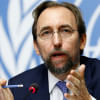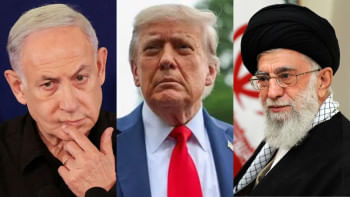Raids at BBC's India offices deeply concerning

We are very concerned and disappointed with the raids at the BBC offices in India, following the recent controversy over its showing of a two-part investigative documentary on the Gujarat riots of 2002. It is a direct threat to freedom of the press. The Indian government has argued that the sudden raids on the BBC's offices by the Indian tax authorities have no relationship with the news agency's airing of the documentary – but we in the media have become quite used to this phenomenon. Whenever the media publishes something that governments do not approve of, we see governments resorting to tactics of harassment – whether through legal, financial, or other threats. And these events are never coincidences.
Any government may feel aggrieved by certain media coverage. And it may also be because the coverage was inaccurate, in which case the fault could lie with the media. But the right way to go about addressing this is through providing accurate counter information. If there were any flaws within the BBC's documentary, the correct way to expose those mistakes would have been for the Indian authorities to provide counter facts. Any government, when it is unsatisfied with a media content, has the right to challenge it by pointing out flaws and factual errors. However, to use the might of the state machinery to harass the media should never be acceptable in any democratic society. Moreover, such pressure – whether it be legal, financial, or otherwise – never works to achieve the end goal.
Ultimately, the media's job is to inform the public. And the public never sees suppression of the media in a positive light. Whenever a state machinery harasses the media right after it has revealed information that the government feels apprehensive of, the people never see it as being a coincidence. Rather, it only further corrodes the state's credibility in the eyes of the public.
Rights groups around the world have already expressed their concerns about the deterioration of press freedom in India. And this latest incident only brings it under more global spotlight for the wrong reasons. Therefore, we agree with the statement of the Indian Press Club that, "Such an action against an international broadcasting network will damage the reputation and image of India as the largest democracy." As such, we hope the Indian government will restrain its agencies from misusing their powers to intimidate the media.
Unfortunately, the misuse of state power to harass the media has been increasing all around the world, including in our country. It is something that should concern all those who believe in the values of a democratic society. We hope the Indian government, as well as all other governments around the world, realise how counterproductive such actions are, and refrain from any such intimidation tactics. Instead, governments should engage more with the media in the realm of information, and look to provide counter evidence when it believes certain coverage by the media has not been accurate.


 For all latest news, follow The Daily Star's Google News channel.
For all latest news, follow The Daily Star's Google News channel. 









Comments